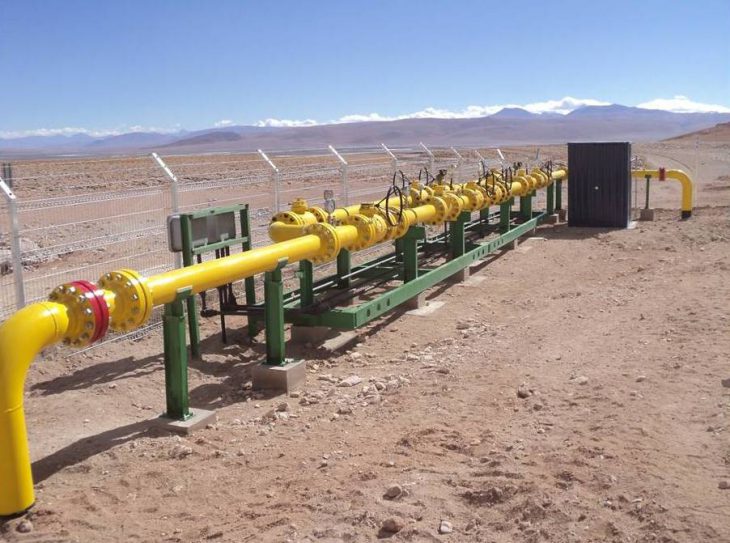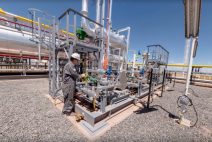Paraguay is advancing in talks with energy companies and high-ranking government officials from Argentina and Brazil about a potential $1.5 billion gas pipeline to connect the three countries, officials told Reuters.
The plan put forward by Paraguay aims to compete with a rival Bolivian project to repurpose existing pipelines and transport Argentine gas to Brazil. If either project materializes, it would mark a potentially significant shift in regional energy flows.
"We are aiming to sign a memorandum of understanding (for the pipeline) at the presidential level between the three countries" in June, Mauricio Bejarano, Paraguay's Deputy Minister of Mines and Energy, told Reuters. "There is generally sympathy for the project."
As dwindling gas production in Bolivia compels Brazil to seek alternative suppliers, the potential option of sourcing gas from Argentina's booming Vaca Muerta shale region through Paraguay's Chaco region is gaining traction, said Rodrigo Maluff, Paraguay's Deputy Minister of Investments.
It would involve an estimated investment of between $1.2 billion and $1.5 billion, partly from the private sector, he added.
Officials and companies from Argentina and Brazil have also been in talks with Bolivia since last year about what they believe could be the fastest and cheapest option for transporting gas from Vaca Muerta to the northern region, which would entail reversing the flow of the Bolivia pipeline.
In recent months, Paraguayan officials courted investors in Sao Paulo, met with Brazil's energy minister in Asunción, and engaged with officials from Argentina.
Tecpetrol, which controls around 15% of Argentina's shale gas production, was part of these recent discussions, as was Pluspetrol, Maluff said. The companies did not respond to a request for comment.
Paraguayan officials said the initial daily capacity of the pipeline is projected at 15 million cubic meters in the first stage.
Alexandre Silveira, Brazilian Minister of Mines and Energy, who traveled to Asunción in April, told Reuters he was aware of Paraguay's intention and expressed his support but noted that further studies were needed. "We agreed to hold another meeting with the private sector to better study the feasibility," he said.
Plans shared with Reuters show that the new pipeline would stretch 110 kilometers from Campos Durán in northern Argentina to the Paraguay border, through another 530 kilometers of arid and flat land in Paraguay's Chaco region to reach Brazil.
Another 400 kilometers of pipeline would connect Carmelo Peralta on the Paraguay-Brazil border with Matto Grosso do Sul, and from there, potentially join the existing Gasbol line to Sao Paulo, Brazil's largest city.



















